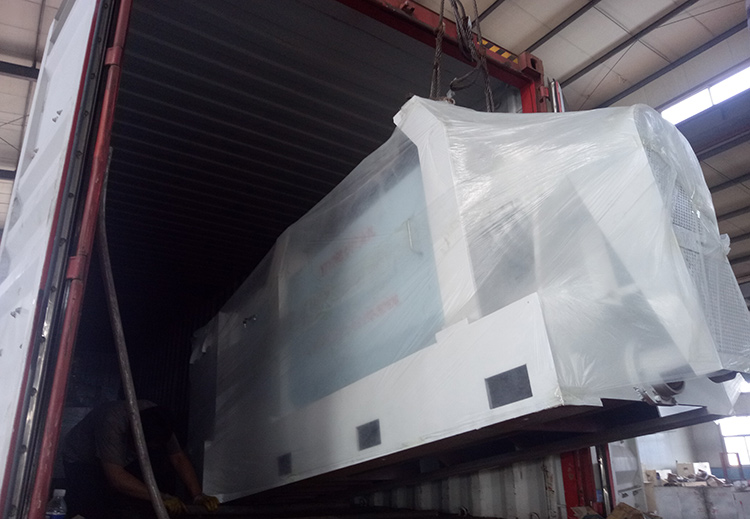Nov . 26, 2024 07:30 Back to list
Steam Roasting Techniques for Enhanced Oil Press Products Quality
Steam Roaster for Oil Press Products A Comprehensive Overview
In the realm of oil extraction, the quality of the product is paramount. One crucial process that significantly impacts the final oil quality is roasting the seeds prior to pressing. A steam roaster is an innovative machine designed to enhance this phase, ensuring the seeds are optimally roasted for maximum yield and flavor. This article delves into the advantages, functionalities, and applications of steam roasters in the oil press sector.
The Purpose of Roasting
Roasting oilseeds serves several essential purposes. Firstly, it helps in reducing moisture content, which is critical in achieving higher oil yields during pressing. Secondly, the heat unlocks the natural flavors and aromas of oilseeds, resulting in a more palatable oil product. Within the context of oil extraction, roasting also plays a role in neutralizing any bitter flavors, making the oil more appealing to consumers. By effectively preparing the seeds, a steam roaster sets the stage for a successful extraction process.
How Steam Roasters Work
Steam roasters utilize the principle of steam and heat conduction to ensure even and efficient roasting of oilseeds. The process begins with the introduction of steam into the roasting chamber, where temperature and humidity are carefully controlled. This dual application of heat and moisture ensures that the seeds are roasted uniformly, preventing scorching or under-roasting, which can compromise oil quality.
The steam also facilitates the breakdown of cell membranes in the seeds, allowing for easier extraction of oil during the pressing phase. This method is significantly different from traditional dry roasting, as it minimizes the risk of producing harmful compounds that can result from excessive heat exposure. The controlled environment of steam roasting not only enhances the flavor profile but also preserves the nutritional value of the oilseeds.
Benefits of Using Steam Roasters
1. Improved Oil Yield By optimizing the roasting process, steam roasters can lead to a higher oil extraction rate. This is particularly important for producers seeking to maximize their efficiency and profitability.
steam roaster for oil press products

2. Enhanced Flavor The use of steam helps in developing the natural taste of the oil, resulting in a superior product that is more appealing to consumers. This is especially significant in niche markets where flavor is a key selling point.
3. Consistency Steam roasters provide a level of control that is difficult to achieve with traditional roasting methods. Consistency in roasting leads to batch uniformity, allowing manufacturers to produce oil of the same high quality every time.
4. Reduced Risk of Toxic Compounds Using steam reduces the likelihood of creating harmful by-products that can occur during high-temperature roasting. This commitment to quality and safety is increasingly important in today's health-conscious market.
5. Energy Efficiency Modern steam roasters are designed to be energy-efficient, combining high performance with lower energy consumption. This not only reduces operational costs but also aligns with global sustainability efforts.
Applications in the Industry
Steam roasters are versatile and can be used for a variety of oilseeds, including soybeans, sunflower seeds, and peanuts. They are applicable in both small-scale and large-scale oil extraction processes, making them suitable for a wide range of producers—from artisanal outfits to industrial manufacturers. In addition, as the demand for high-quality, flavored oils continues to rise, steam roasters are increasingly becoming essential tools in the oil press industry.
Conclusion
The introduction of steam roasters into the oil extraction process represents a significant advancement in the quest for higher quality and more flavorful oils. By effectively preparing oilseeds through controlled roasting, manufacturers can achieve higher yields, enhanced flavors, and consistency in production. As the industry continues to evolve, embracing technology such as steam roasting will undoubtedly play a pivotal role in meeting the expectations of modern consumers and ensuring the sustainability of oil production practices.
-
HP 120 Cold Oil Press-Hebei Huipin Machinery|Oil Extraction, Cold Press
NewsAug.07,2025
-
HP 120 Model Cold Oil Press-Hebei Huipin Machinery|Cold Oil Extraction, High Efficiency
NewsAug.07,2025
-
HP 120 Model Cold Oil Press - High-Efficiency Oil Extraction&Automated Processing
NewsAug.07,2025
-
Safflower Oil Press Service | Expert & Efficient Solutions
NewsAug.07,2025
-
HP 120 Model Cold Oil Press - Hebei Huipin Machinery | Advanced Oil Extraction Technology
NewsAug.06,2025
-
HP 120 Cold Oil Press-Hebei Huipin Machinery|Cold Pressing, Oil Extraction
NewsAug.06,2025
